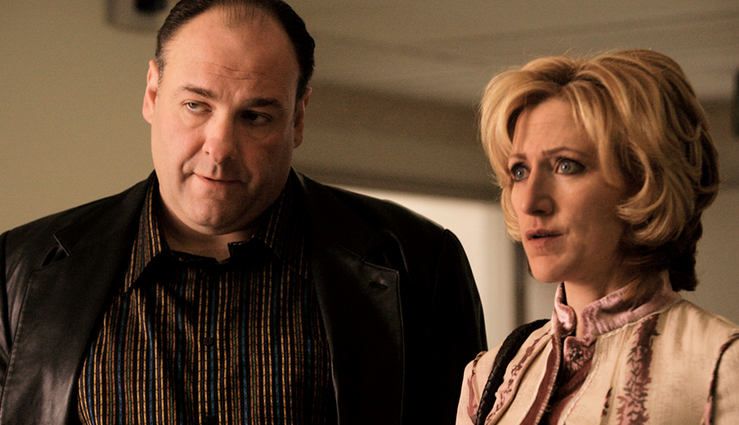Some of television’s most beloved characters in recent history have 1) all been white men and 2) all exhibited sociopathic tendencies. The three most overt examples are, of course, Tony Soprano (James Gandolfini) from The Sopranos, Don Draper (Jon Hamm) from Mad Men and Walter White (Bryan Cranston) from Breaking Bad. Viewed collectively from an objective standpoint, these men represent some of the shadiest, most despicable protagonists in TV history. Moreover, all three shows were airing at the same time at some point during their overlapping run, indicating an undeniable audience gusto for psychotic leading men.

Tony Soprano, as the trailblazer of the trend (The Sopranos premiered in 1999), is the obvious frontrunner of sociopathy, and is the only character of the three mentioned who actually sees a therapist to make his condition, which he sees as depression, even more legitimate. Although his psychiatrist, Dr. Melfi (Lorraine Bracco), isn’t initially convinced that Tony is a sociopath, seven years of having him as a patient convinces her otherwise–especially after her own therapist derisively informs her that sociopaths only get off on talk therapy as it gives them even more opportunity to feign their attempts at empathy and humanity.

In the case of Don Draper, his similarity to Soprano isn’t so far off–at least with respect to his serial extramarital affairs and penchant for secrecy. The abandonment of his immediate family was made with ease when he saw a chance to change his identity by stealing the tags off a dead soldier in the Korean War. His stoic commitment to never looking back or acknowledging who he was is steadfast, except in rare moments of panic when he fears being found out and therefore expresses unexpected bursts of emotion–usually displayed in front of a woman he’s currently duping/having sex with.

And then there’s Walter White. Possibly the most standout sociopath among the three because he started out as “your average American citizen” and seemed to possess a goodness about him that was stripped away upon being diagnosed with cancer. The primary differences between him and the others are 1) his sex drive is lacking, therefore he doesn’t cheat on his wife and 2) he genuinely believes that what he’s doing is for his family, not admitting until the final episode that his motives for making meth were, ultimately, all about himself.

With this trio of lauded, larger than life characters so unequivocally revered by a mass audience, it leaves one to wonder why we’re so infatuated with and enamored by archetypes that are, for all intents and purposes, evil. The most logical reason, perhaps, is that we’ve lost our faith in good–quite some time ago, in fact (circa the Watergate incident most likely). Furthermore, the actions of these three men signify our own wish fulfillment. Since we ourselves don’t have the mental incapacity or bravado to do what they do, we can live vicariously through their guiltless iniquities. Thus, it’s hard to know which is sadder: their lives or ours.






















[…] Hispanic population, this hasn’t stopped many an Italiano or Italiano wannabe in the vein of Tony Soprano from opening a restaurant celebrating the country’s orgasmic cuisine. Unfortunately, the few […]